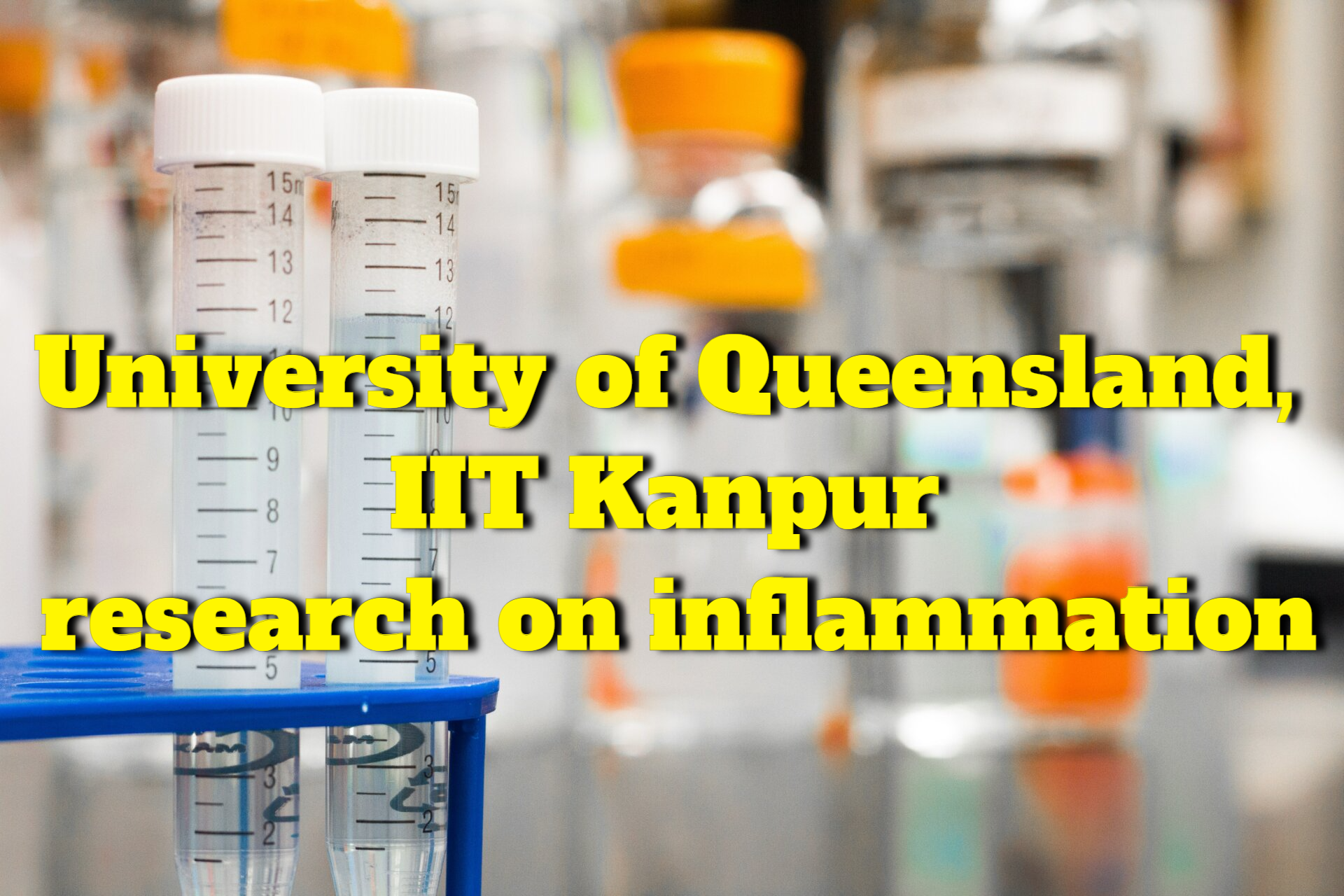An international team of scientists has discovered immune system components that may aid in the fight against chronic inflammation. Further investigation into novel therapeutic compounds that operate on C5a receptors will be aided by this study’s findings. C5A is a very strong immunomolecule that has been related to numerous immune-associated inflammatory illnesses, including cancer. In the immune system, scientists are looking into the “complement system,” which is undergoing extensive research. Inflammatory disorders such as sepsis, COVID-19, stroke, heart attacks, malignancies, and brain illnesses are triggered when the system is engaged incorrectly. COVID-19: Because of these findings, scientists may be able to devise new anti-inflammatory medication compounds that target C5aR2.
Key Highlight:
- Scientists from Tohoku University in Japan and McGill University in Canada worked together on the project with Professor Arun Shukla of IIT Kanpur, India.
- Inflammatory disorders such as sepsis, COVID-19, stroke, heart attacks, malignancies, and brain illnesses are triggered when the system is engaged incorrectly.
- Because of these findings, scientists may be able to devise new anti-inflammatory medication compounds that target C5aR2.
- C5A is a very strong immunomolecule that has been related to numerous immune-associated inflammatory illnesses, including cancer.
Thanks to a partnership between IIT Kanpur and the University of Queensland, chronic inflammatory disease research has been made possible.
Findings from the peer-reviewed scientific journal Molecular Cell shed light on C5aR2, which plays an essential role in the regulation of various immunological and inflammatory processes and its potential application as a therapeutic target for the treatment of numerous long-term inflammatory conditions illnesses.
Scientists from Tohoku University in Japan and McGill University in Canada worked together on the project with Professor Arun Shukla of IIT Kanpur, India.
Pathbreaking research at the Indian Institute of Technology Kanpur
It’s the first time that crucial immune system chemicals have been identified that could aid in the fight against the chronic inflammation that underlies so many different diseases.
It is hoped that the findings of this study may aid future work on novel therapeutic compounds that act on the receptors for C5a, a critical immunological molecule connected to several immune-linked inflammatory disorders such as cancer and rheumatoid arthritis as well as sepsis and even Covid-19.
“The publishing of the study paper on inflammatory illnesses is a tribute to the ability of IIT Kanpur to undertake challenging research at the frontiers of science,” stated IIT Kanpur Director Prof. Abhay Karandikar.
“We have high hopes that these results will shed new light on the fight against chronic inflammatory disorders,” he said.
University of Queensland researchers are looking into the immune system’s “complement system.” The ‘complement system,’ according to Prof. Trent Woodruff, was the subject of the study.
His statement goes somewhat like this: “When the system is triggered incorrectly, it leads to inflammatory diseases such as sepsis and COVID-19. This protein’s unique shape has made it extremely difficult for researchers to decipher how it activates.”
Prof. Woodruff explained that C5aR2 relies on signal-regulating proteins known as -arrestin proteins instead of cell-signaling proteins.
Our research looked at how the C5aR2 and -arrestin proteins interact while also looking for substances that triggered a connection between the two. Prof. Woodruff continued, “We observed critical and particular cell signals present when the C5aR2 was activated, which may act to increase the immune system’s response in inflammation”.
Furthermore, the study’s co-author Professor Arun Shukla stated that it gave an outline for future research into -arrestin proteins and therapeutic regulation in disease.
“We are now attempting to advance these discoveries into disease models and may enable scientists to build innovative therapeutic compounds targeting C5aR2 to treat inflammatory illnesses,” he said.
#IITKanpur and The University of Queensland (UQ) have published the results of a path-breaking international collaborative research in inflammatory disease in ‘Molecular Cell’, a peer-reviewed scientific journal on molecular and cell biology.https://t.co/3ywuleekDn
— IIT Kanpur (@IITKanpur) October 4, 2021




